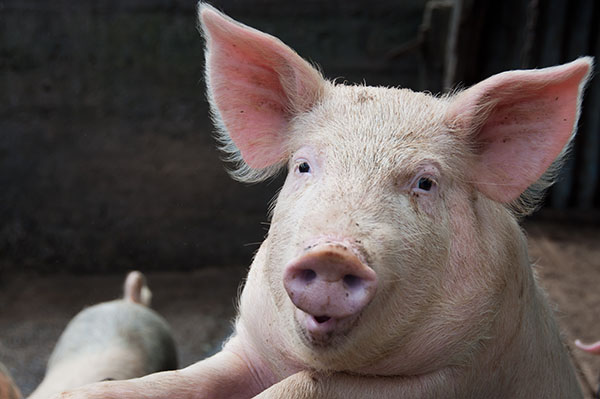US company starts breeding of gene-edited pigs resistant to PRRS

Minnesota-based Acceligen has announced that it will begin breeding gene-edited pigs that are resistant to Porcine Reproductive and Respiratory Syndrome (PRRS). This selection includes the "deployment of protein modifications" developed by Kansas University of. It is based on the work of Dr. Bob Rowland and colleagues at the University of Missouri (U of M).

Rowland explained that the idea of achieving PRRS resistance through gene editing originated 20 years ago. In 2002, he and his colleagues published a paper on protein removal by gene editing in pigs to make their organs suitable for human transplants.
At the time, other researchers described proteins that are likely responsible for PRRSV entry and infection in the lungs of pigs. “Like the molecule on the cell surface that led to organ rejection,” Roland explained, “the molecule responsible for PRRS virus infection can also be located on the cell surface.” In June 2002, he applied to the University of Missouri about how scientists could remove the gene responsible for susceptibility.
Gene-editing not the only solution?
However, in late 2021, researchers in Scotland and New Zealand said that gene editing alone would not eradicate PRRS. They suggested that while “the recent production of gene-edited pigs that are completely resistant to PRRSV have raised hopes for eradication of this deadly disease, our models predict that nationwide eradication of the disease will be difficult to achieve if gene editing is used as a main asset." the only control of disease." However, they stated that eradication could be possible within 3 to 6 years "if gene editing is complemented by widespread and sufficiently effective vaccination."
In March 2022, the FDA issued its first ruling on genetically modified livestock. He provided an enforcement decision (a "low risk definition") for 2 calves genetically edited for "smooth coat" making them more heat tolerant. The solution was taken over by Recombinetics (the parent company of Acceligen).
In 2020, GalSafe pigs and AquAdvantage salmon became the first genetically engineered (transgenic) livestock approved by the FDA for human consumption.
This genetic engineering technology involves inserting foreign DNA into the genome, and these pigs and salmon are considered genetically modified organisms (GMOs).
SOURCE: meatinfo by materials pigprogress.net